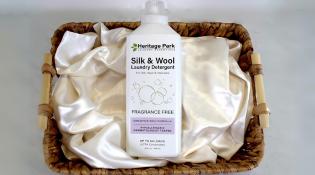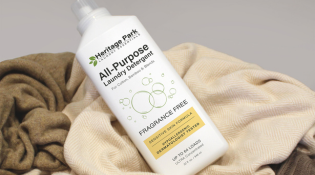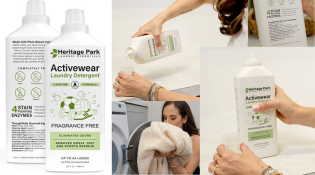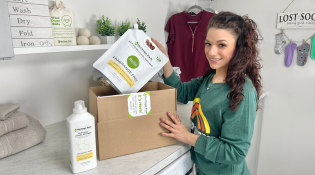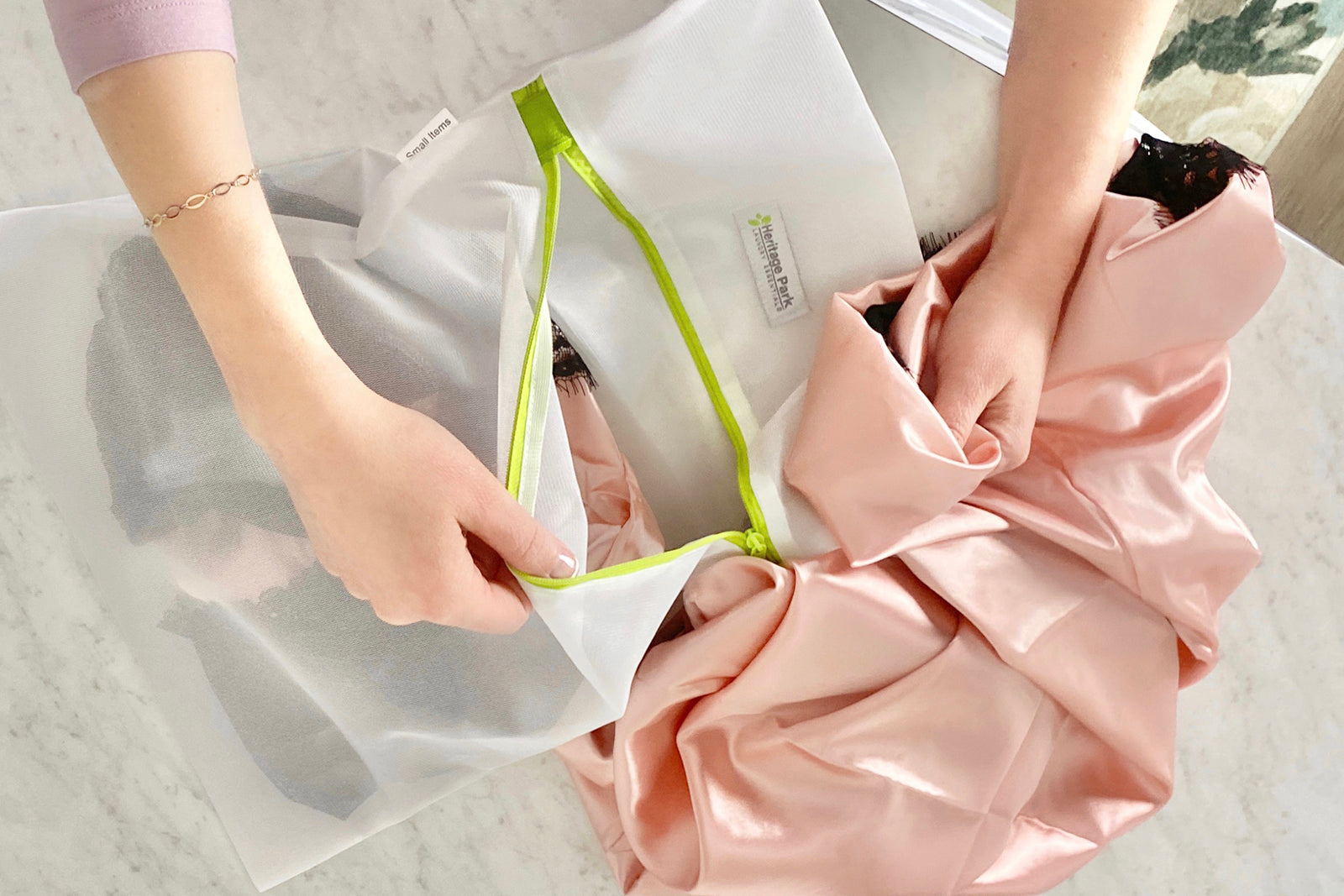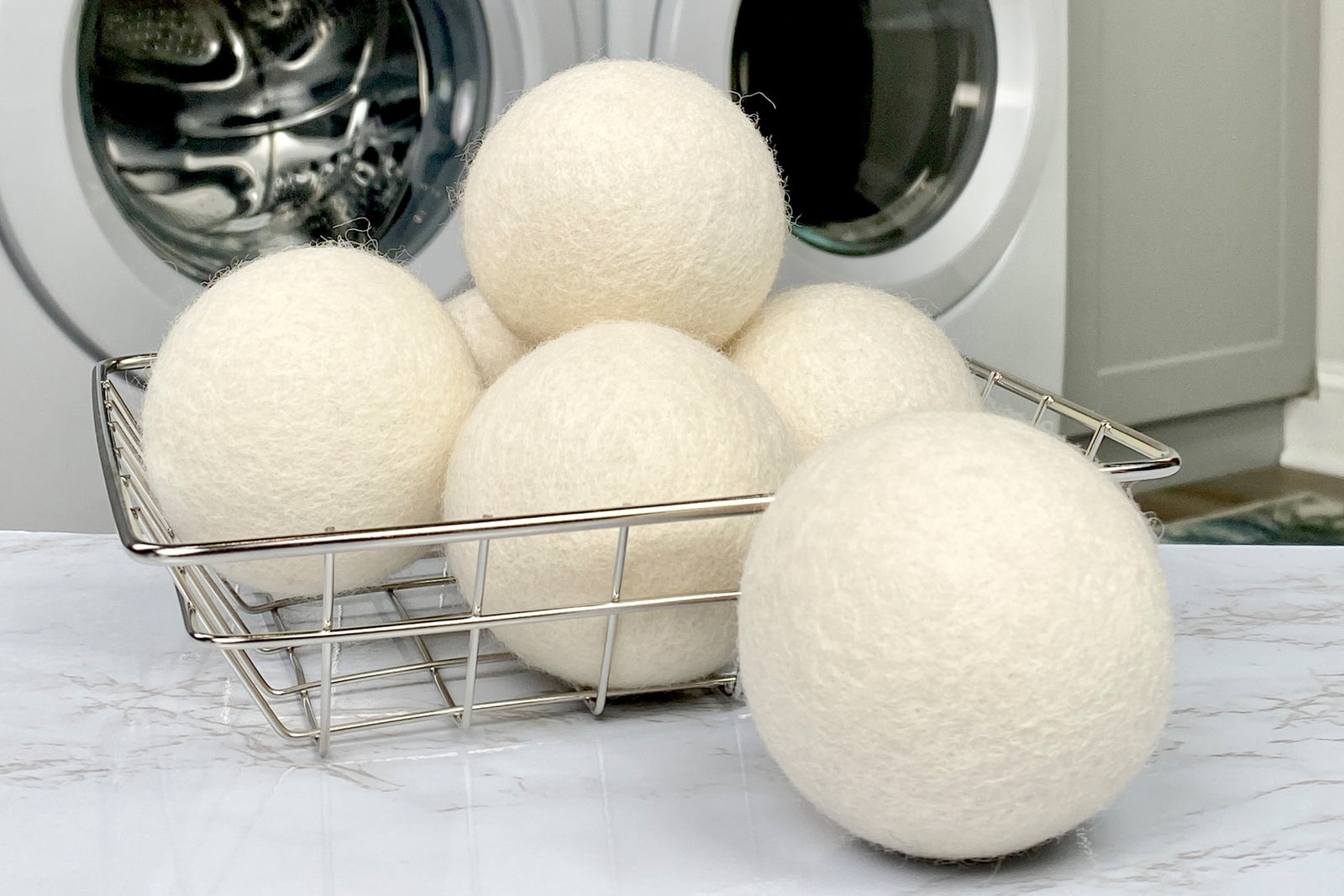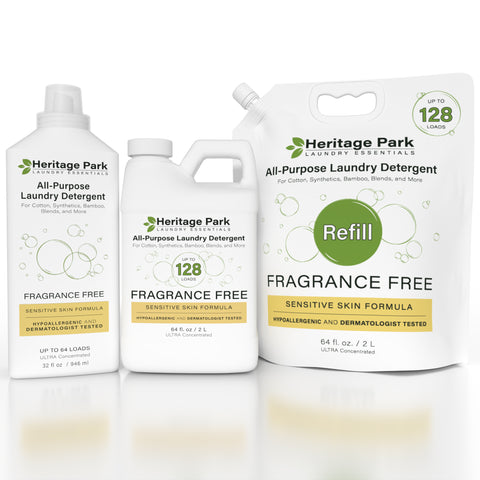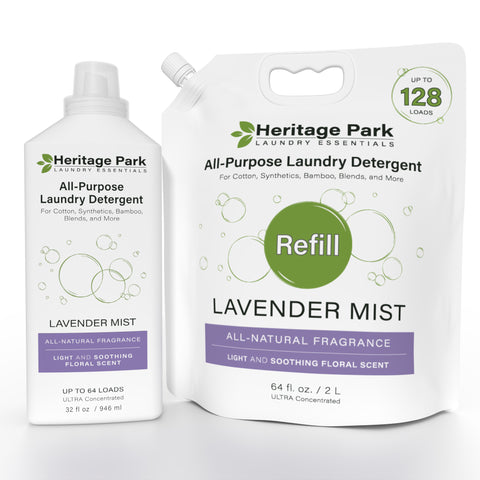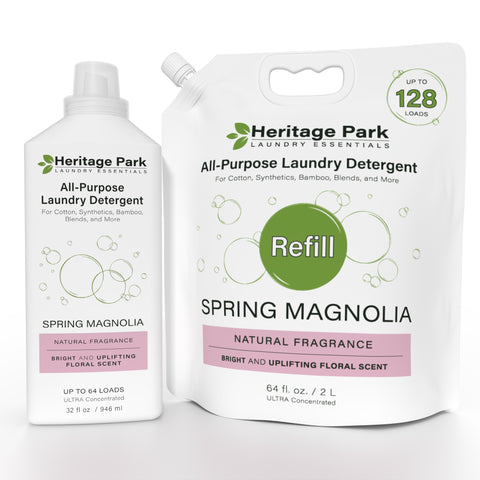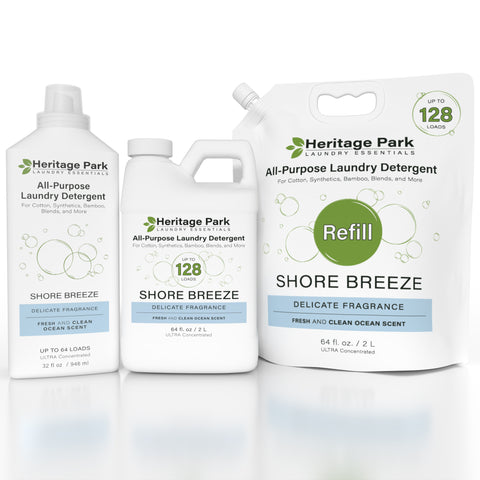If you’re looking for a natural way to clean fine fabrics without causing damage, an enzyme laundry detergent could be right for you. Enzymes are a highly effective laundry stain remover that won’t harm delicates, including clothing and household linen. But to make the most of any enzyme laundry detergent, you need to know a bit about what enzymes are and how they work.
Here at Heritage Park, our Luxury All-Purpose Detergent contains a proprietary blend of enzymes; it is a concentrated, pH-neutral formula that is wonderful for removing stains from delicate fabric. Let’s take a closer look at what enzymes are and how they work in your wash.
What Are Laundry Enzymes?
In simple terms, a laundry enzyme is a natural compound that acts as a cleaning catalyst. An easy analogy for understanding enzymes is to think about the digestive enzymes in our saliva; each of these is targeted to break down and dissolve specific types of food. Laundry enzymes operate similarly, with different enzymes working to dissolve different types of stains.
A detergent that contains enzymes will be labeled as an “enzyme detergent” or “biological detergent.” Laundry enzymes have been around the cleaning product industry for nearly five decades. However, they have grown increasingly popular in recent years as more consumers look for alternatives to harsh chemicals such as chlorine bleach or even gentler compounds like hydrogen peroxide; both of these can stain and weaken fabric. Enzymes are also far gentler on sensitive skin than these chemical-laden formulations.

How Enzymes In Laundry Detergents Work to Remove Stains
Understanding how enzymes work for stain removal comes down to a bit of basic chemistry. Most stains contain more than one component; ice cream, for example, contains proteins, fats and starches. Stains are multi-layered and require multiple enzymes to release them from fabric. Trying to clean that ice cream stain with only protein enzymes would be ineffective because the starch and fat in the stain would coat or block the protein enzyme from working effectively. This is why enzyme blends are essential; a good enzyme detergent contains multiple enzymes that work to clear paths for each other, thus boosting their collective power to remove stubborn stains.
Which Laundry Detergent Enzymes Work Best?
Here at Heritage Park, we are extremely proud of our proprietary enzyme blend and the rest of our non-toxic ingredients. We can’t spill our secret formula, but we are happy to discuss the five types of enzymes found in our detergents and describe how they work for tough stain removal:

- Protease: works on protein. Protein is found in sweat, blood, chocolate, dairy products and milky drinks like tea, coffee and chai. You may be surprised to learn that a grass stain is also protein based! The protease enzyme breaks down the molecules in these protein stains, which makes it possible for the surfactant (the active cleaning agent) to lift them from the fabric. (Note: many fabrics -- including silk, wool, and cashmere -- are protein based. This means protease will, over time, degrade the quality of the fabric. For these items, use our enzyme-freeLuxury Silk, Wool and Cashmere formula.)
- Amylase: works on starch.Starch is used to thicken many prepared foods, from ready-made sauces and baby foods to dressings and desserts (chocolate stains, for example, contain both protein and starch). Starch is “sticky” and attracts other dirt particles in the air and even in the washing machine. Starch stains can be very noticeable, which is why amylase is needed to break them down and help wash them away.
- Pectate Lyase: works on pectin. Pectin is another type of starch. It occurs naturally in berries, bananas and avocados, as well as many vegetables. Pectin is also used to thicken jams and jellies as well as yogurt drinks and smoothies. Like starch, pectin is sticky; pectate lyase breaks down pectin so that the detergent can remove the stain.
- Mannanase: works on gum. Guar and locust bean gums are found in ice cream, mayonnaise, and salad dressing as well as in personal care products like toothpaste and body lotions. Mannanase breaks down these gums to help detergents remove their sticky stains.
- Lipase: works on fats, oils, and grease. Grease and oil stains can be a nightmare to get rid of. And lots of our favorite foods (cheeseburgers, pad Thai, French fries, sausage, pizza, hot dogs, and more) are oily and will leave a greasy stain. On top of their inherent animal fats, many of these items are cooked in oils peanut, sunflower and sesame. Without the right enzyme, these stains can quickly become permanent. Lipase will break down fat and oily stain.
What is an Enzyme Presoak?
Sometimes a laundry stain will require more than a simple washing. You may have heard the term "laundry enzyme presoak." A well-formulated enzyme detergent like Heritage Park All-Purpose Luxury Laundry Detergent can also be used as a prewash stain remover, either alone or in combination with other methods.
For lighter stains, dissolve a cupful of liquid detergent or powdered detergent in a cup of warm water and put in a spray bottle; spray enzyme solution liberally over the stain and let sit at least an hour prior to the main wash. For more serious stains, moisten the fabric, and apply detergent directly; rub gently to remove the stain. Leave to soak for up to 24 hours before washing. Repeat as necessary.
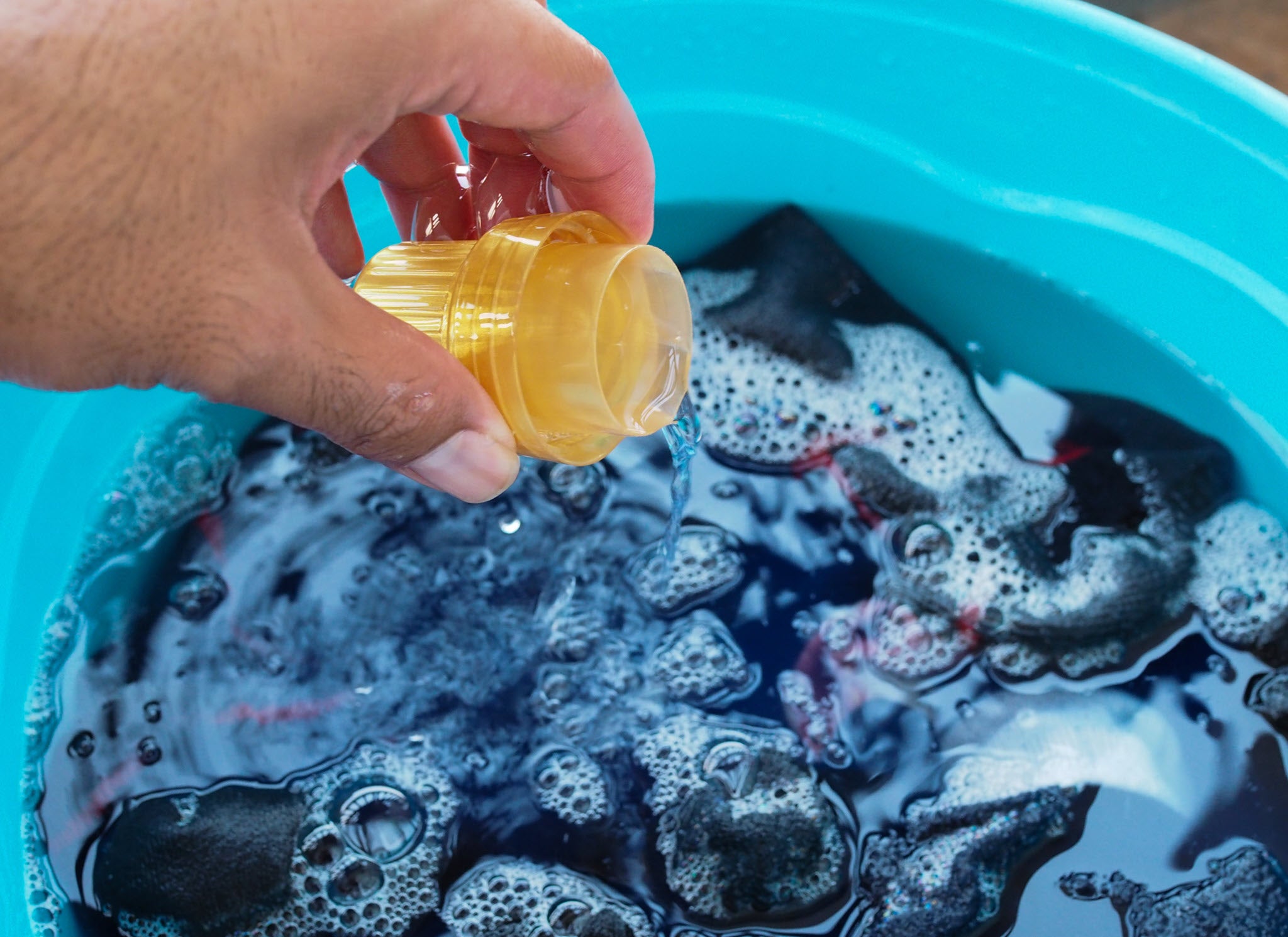
Note: always follow the manufacturer’s directions for fabric care and stain removal. Check out our guide to removing common stains here.
When NOT to Use an Enzyme Cleaner
While we are very big fans of the cleaning power of enzymes, there are definitely some fabrics on which you should NOT use them. As we discussed above, biological laundry detergent almost always contains an enzyme that targets protein, which is one of the most common compounds found in stains (blood, dairy, body fluids, grass, etc.). Fabrics such as silk, wool, cashmere and leather are themselves made of protein. Prolonged use of an enzymatic cleaner -- which dissolved protein-based stains -- will eventually degrade the quality of these luxury fabrics.
For these materials, we recommend our enzyme-free detergent formulation, Heritage Park Luxury Silk, Wool and Cashmere Detergent which is suitable for both hand- and machine-washing.
Heritage Park Laundry Essentials
At Heritage Park, caring for fine fabric is our passion. As lifelong collectors of luxury sheets, towels, and cloths, we found many commercially available "gentle detergents" either damaged our fabrics or didn't get the job done, leaving stains. We knew we could do better. So we developed a formula with the perfect balance of powerful -- yet safe -- ingredients designed to remove tough, a set-in food stain while remaining gentle on luxury clothing. Our concentrated liquid laundry detergent is neutral pH and contains no sulfates, phosphates, chlorine bleach, or optical brighteners. It is hypoallergenic and pediatrician and dermatologist approved, with no animal testing ever. Please connect with us at (800) 977-1841 or visit our store or email us with any product feedback or cleaning questions.


